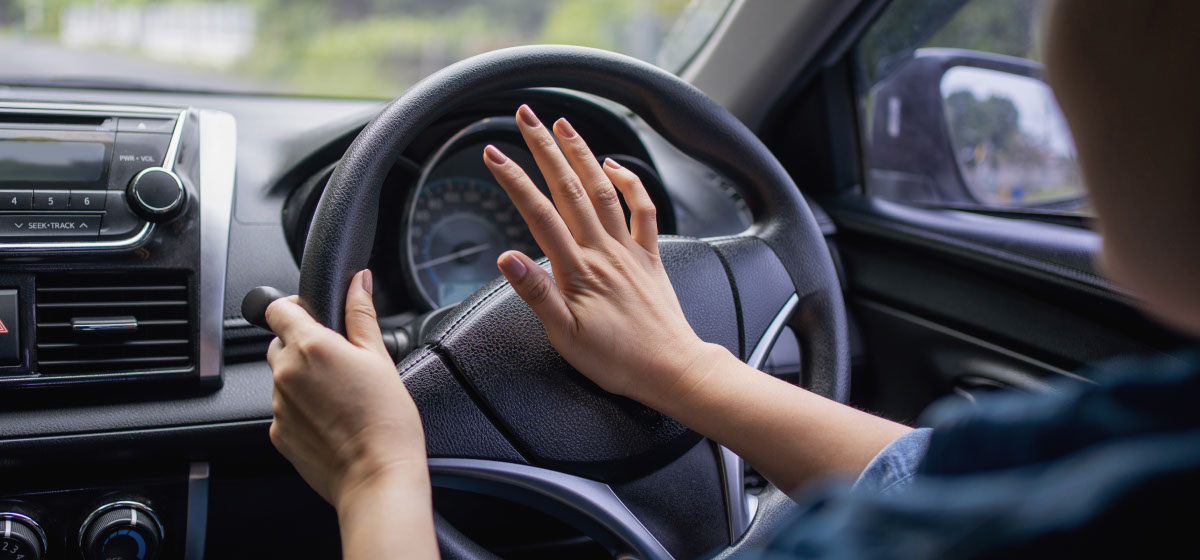When are you not allowed to sound your horn?
If you’re driving in a dangerous situation, you’ve only got a second to decide
whether to sound your horn. For some people, especially for new drivers, it can
be difficult to have the courage of your conviction and actually honk that horn.
Some drivers have the opposite problem and are a little too horn happy.
Whichever camp you sit in, understanding when you’re not allowed to sound
your horn and when you definitely should, can help you make those fast-paced
decisions.
What is a car horn for?
According to rule 112 of the Highway Code you should only ever sound your horn
to warn other road users that you’re present in a moving vehicle. It’s basically
there to warn road users of danger.
When should you sound your horn?
Here’s some examples of when it’s a good idea to honk your horn:
- If another vehicle is moving into your lane and hasn’t checked to see that you’re there, you should sound your horn to let them know of your presence.
- If you’re travelling around a bend and need to alert other drivers that you’re coming.
- If you’re driving in winter in foggy conditions or your vehicle is obscured by something.
When are you not allowed to sound your horn?
- You’re not allowed to sound your horn in aggression… ‘road ragers’, we’re going to need you to listen closely to this one. You’re not allowed to sound your horn to let out your frustrations. As tempting as it can be when someone is lane hogging or doesn’t indicate at a roundabout this isn’t an appropriate use of your horn. Deep breath and keep it moving. However, if you get cut up for example and this puts you in danger, you should honk your horn to let the driver know that you’re there. There can sometimes be a fine line between annoyance and a genuine need to make another driver aware of the problem. If you’re frustrated but you’re also in danger, you should still sound your horn.
- You’re not allowed to sound your horn in a stationary vehicle according to rule 112 of the Highway Code, you should only honk your horn in a moving vehicle. This is because your horn is there to warn cars of danger. (Except when another road user poses a danger)
- You’re not allowed to sound your horn restricted areas between the hours of 11.30pm and 7.30am. Restricted areas are generally built up areas with lots of buildings and street lighting. This is because it’s considered anti-social behaviour to sound your horn late at night or in the early hours when people are trying to sleep. However, there is an exception. You’re allowed to sound your horn if you’re warning a road user of a danger. Danger on the road trumps people needing to sleep, so don’t be afraid to sound your horn if you need to.
When should you NOT sound your horn?
Here’s some examples of when not to sound your horn:
- When you drive past your friend and just want to say hello.
- When you’re parked in stationary traffic and feeling annoyed.
- When you’re driving in a built-up area at night and someone is lane hogging.
Car horn isn’t working?
If you still need to drive while your car’s in the garage, you could borrow one with temporary car insurance. You could get cover from 1hr to 60 days. Plus there’s no impact on the owner’s no claims bonus if you need to make a claim
